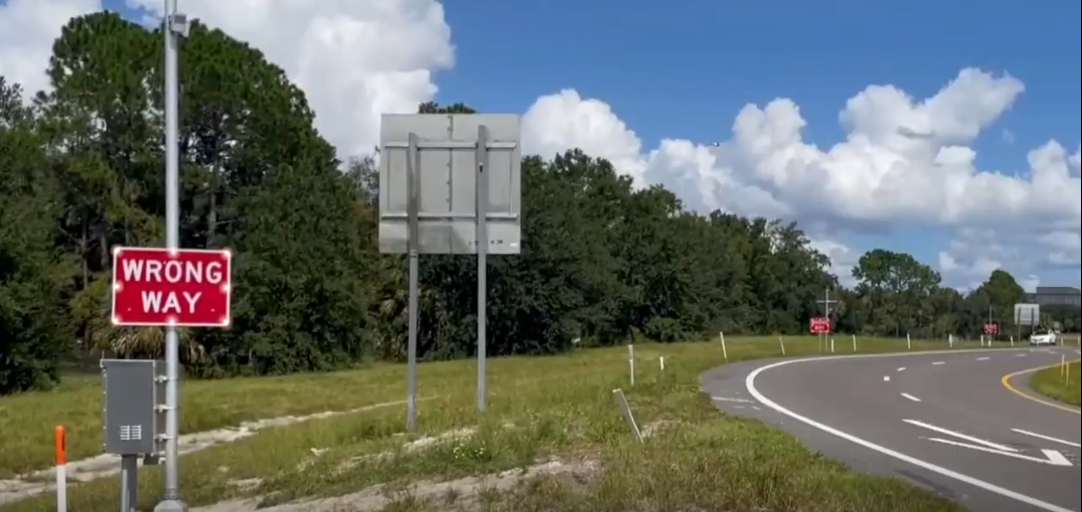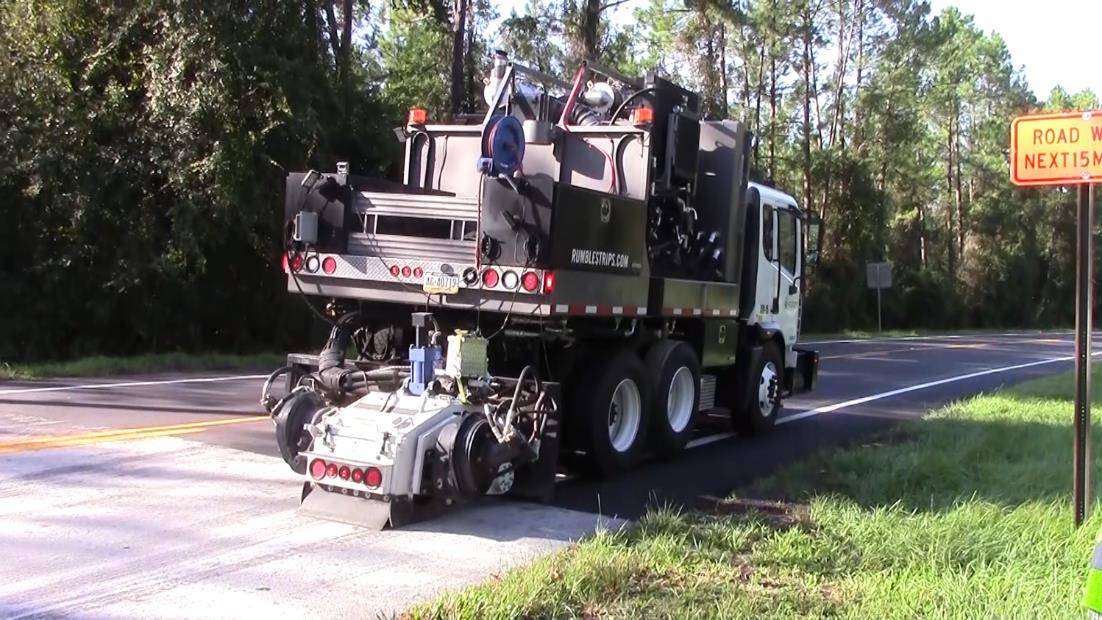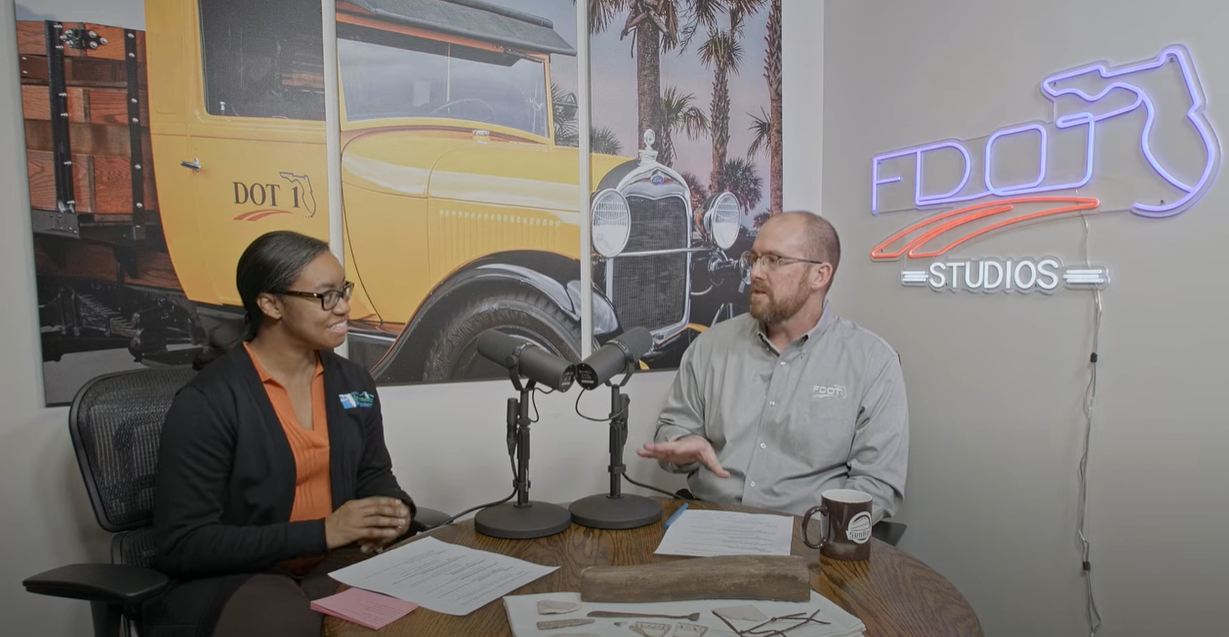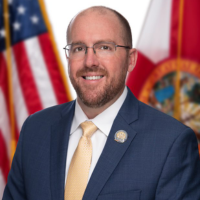
Setting the Safety Standard in Florida
FDOT targets zero fatalities with innovative engineering, messaging initiatives
By Jared W. Perdue, P.E., Secretary | Florida Department of Transportation
The Florida Department of Transportation is a leader in planning and implementing innovative programs to reduce congestion, increase mobility, advance technologies and support the long-term resiliency of Florida’s transportation infrastructure. Safety remains the highest priority for these massive, impactful and nationally-visible programs.
To convey our vision, we created the FDOT Compass, an at-a-glance visual of our department’s priorities. The compass is the result of a grassroots effort to engage with the communities we serve and understand what is important to them. Each point on the compass represents the shared goals and values that emerged from those conversations, with everyone agreeing to place safety at the top as our collective North Star. Below are a few ways we have evolved our program to reflect and advance our collective goal:
- Engineering safety into roadways
- Improving safety through data-driven, multifaceted behavior change
- Extending an open invitation to innovators
- Encouraging personal advocacy
Engineering safety into our roadways
Beginning in 2020, traffic fatalities increased nationwide. Statistics show most vehicle crashes result from lane departures, collisions at intersections or colliding with people walking or biking. To mitigate these actions, we instituted several major initiatives designed to improve driver predictability and consistency on our roadways, including:
A $60 million lane departure program. We initiated a statewide deployment of ground-in rumble strips — a first-in-the-nation Florida-specific design — on all high-speed arterial facilities with lane departure crash histories. The rumble strips alert drivers when they are drifting out of their lane and toward oncoming traffic. Statistics show centerline rumble strips can lead to a 20% crash reduction. More than 3,000 miles of Florida roads now feature this deterrent device.
A $45 million Wrong-Way Vehicle Detection System. To reduce wrong-way driving, we developed and deployed enhanced pavement markings, signage and devices on select interchanges along the Florida Highway System. When a vehicle is detected traveling the wrong way on the interchange, the system automatically activates flashing red lights to alert the driver. A message notifies the closest regional transportation management center where Florida’s Highway Patrol officers are stationed. At a moment’s notice, FHP can mobilize to intercept the wrong-way motorist before a crash occurs. Nearly 550 off-ramps on Florida’s high-occurrence interchanges will be part of this initiative.
A $14 million movable bridge safety program. FDOT owns many movable bridges throughout the state’s eastern and western intracoastal areas. To ensure the safety of pedestrians and cyclists on these bridges, we recently rolled out new technology that uses lidar, thermal cameras and artificial intelligence to prevent a bridge tender from raising a span if a person or moving object is detected on it.
After deploying a successful pilot program, we chose to implement it statewide. By fiscal year 2025, all moveable bridges will be equipped with this lifesaving technology.
A $100 million intersection safety lighting program. Under our State Highway System Intersection Lighting Retrofits Program, we have replaced older, high-pressure sodium lighting with new LED technology. The program has improved nighttime visibility and enhanced pedestrian safety at high-volume intersections statewide.
When implemented along the Busch Boulevard corridor near Tampa Bay, the lighting program reduced nighttime injuries and fatalities by more than 50%. FDOT District 7 implemented improved lighting at more than 400 intersection locations, with before-and-after studies showing a 65% reduction in crashes. Six years after implementing a similar project on State Route 30 in FDOT District 3 near Pensacola Bay, fatalities have declined.


Improving safety through behavior change
We are seeing positive results from our engineering initiatives. However, safety is complex and requires multiple strategic approaches to be successful. In a majority of serious and fatal crashes, driver behavior is a contributing factor. That is why we created Target Zero, a data-driven, multifaceted behavior change initiative. Target Zero takes many existing safety education and awareness campaigns a critical step further through original primary research with the goal of influencing dangerous driver behaviors before serious and fatal crashes occur.
This initiative first identifies behaviors that contribute to crashes. Through outreach to affected communities, including focus groups, we initiate conversations with drivers to hear about their approaches to road safety. Next, we strive to understand why those behaviors are occurring. Then, we identify who the specific target audience is and create impactful messages to promote safe driving.
“Florida in Motion” Newscast
FDOT continues to diversify its communication platforms to get important messages out to as many people as possible. Our latest initiative is Florida in Motion, a newscast on YouTube. The newscast strives to empower the communities we serve, inspire collective action and tell the FDOT story.
Since the first episode aired in late 2023, the newscast has generated more than 2,000 subscribers.

Extending an open invitation to innovators
We are inviting developers, creatives and entrepreneurs with innovative technologies that could impact safety to come to Florida. We want to be the state where these impactful, game-changing ideas are fully implemented, and we are setting the stage from a policy and funding perspective to make it happen.
In addition, we have the tools innovators need to test their ideas and bring them to fruition. The SunTrax Transportation Testing Facility, the first facility in U.S. designed for both connected and automotive testing, is a 475-acre transportation research facility with a 2.25-mile oval track where innovators can research, develop and test emerging transportation technologies. Florida is also home to premier transportation research institutes, which advance our understanding of safe mobility. These resources act as incubators, giving innovators a space to research, test and apply their potentially lifesaving transportation solutions.
Encouraging personal advocacy
Another way we are evolving our safety program is by encouraging each of our employees, vendors, consultants and every professional in the transportation industry to become a safety champion. Imagine the impact we would have if everyone in the transportation industry took personal responsibility for safety education in the communities where they live, work and play. We could usher in a new era of transportation safety.
The nature of transportation safety is changing, and DOTs must ensure their programs continue to meet the needs of motorists. By evolving our safety program to include engineering, research-based data-driven education, innovation and personal responsibility, we will realize a future with zero serious injuries and zero fatalities.
ABOUT THE AUTHOR
 Jared W. Perdue, P.E.
Jared W. Perdue, P.E.
Secretary
Florida Department of Transportation
Secretary Perdue oversees the lead agency in state government, which has the statutory responsibility to coordinate the planning and development of a safe, viable and balanced transportation system serving all regions of Florida and ensuring the compatibility of all components, including multimodal facilities.
